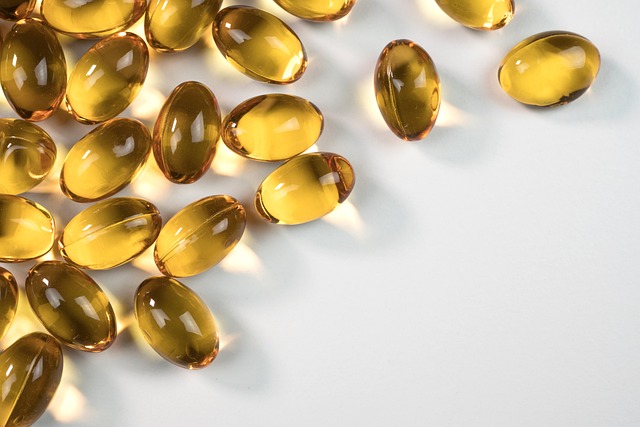‘Having candida’ tends to be a much bandied about and over-used phrase. The fact is, the candida albicans yeast is a normal part of our gut flora and should always be present in our gut in small quantities.
The problems start when candida begins to overgrow. If it gets out of control candida can grow into your gut lining, start to break it down and cause ‘leaky gut syndrome’ which can give rise to many immune related issues.
Candida Symptoms
Normally, our ‘good’ bacteria will keep candida in check. However, when candida starts to overgrow you may experience any of the following symptoms –
- Exhaustion
- Sugar Cravings
- Cravings for yeasty food (like alcohol or bread)
- Brain fog
- Recurrent UTIs
- Sinusitis
- Allergies
- Gas and bloating
- Low immunity
- Thrush and other itchy, fungal patches on the skin such as athletes foot.
What causes candida?
If you’ve experienced any of the following scenarios, then you could well be looking at candida as the cause of your issues –
- A course of broad spectrum antibiotics
- Ongoing antibiotic treatment
- Taking the contraceptive pill
- Eating lots of sugar
- Prolonged stress
- Diabetes
- Corticosteroid medications
- Drinking a lot of alcohol
So, lets look at some of these symptoms in a bit more detail:
1. Feeling tired a lot of the time
If you feel fatigued or tired a lot of the time despite sleeping well, candida may well be to blame as it’s one of the causes of chronic fatigue, although certainly not the only one.
2. Being in a bad mood
Candida can also cause you to feel anxious, have erratic mood swings or depression, and it can also worsen PMT or menopause symptoms. For more on managing erratic hormone levels have a look here.
3 & 4. Recurring UTIs or recurring sinusitis
It often surprises people that candida can often be the culprit behind these two niggly and persistent infections. Also, if you have anything like post-nasal drip, hay fever or congestion, candida may be to blame.
5. Digestive symptoms
Again, another common cause of ‘IBS’ type symptoms, candida can often give rise to bloating, cramps, diahorrea and constipation.
For more tips of getting rid of gut aches and pains have a look here.
6. Brain fog
Another huge symptom of candida is the dreaded brain fog – this is so common. Do you ever have that feeling of having cotton wool between your ears? Or that you can’t concentrate, have a poor memory or lack focus? Again, if this is bothering you it may well be worth getting tested.
7. Poor blood sugar control
8. Toxins
Intolerance to fumes, cigarette smoke or perfume – due to the toxins from candida overloading the liver.
9. Fungal infections
Vaginal thrush, athletes foot, itchy patches on the skin – all of these are likely to have started from a yeast infection in the gut.
Ensuring you’re eating a diverse diet can be a nightmare when you’re suffering with your gut, especially as so many of these ‘healthy’ foods are also big trigger foods. If this is the case for you I’d highly recommend downloading my online course The Ultimate Gut Health Programme to help you eat safely, whilst avoiding triggering symptoms.
It’d be impossible to include all you need to know in one blog, but the programme will have all you need to know to ensure you’re soothing your digestive system, whilst eating delicious and filling foods.
The best way to get on top of candida?
The first thing to do is to get tested. Although candida can commonly cause a lot of these symptoms it’s definitely not the only trigger. There are many different yeasts, parasites and bacteria that can cause similar issues and testing is the only way to know for sure where your symptoms are stemming from.
Dietary upgrades
Once you know what you’re dealing with, the usual course of action would be to modify your diet – taking out sugary and very high carb foods and replacing with lots of fresh vegetables, lean proteins and good fats.
Supplements
Anti-fungal supplementation is also usually recommended, along with replenishing levels of good bacteria. Beware – anti-fungal supplements are very strong, although you can buy them freely I wouldn’t use them unless under the supervision of a practitioner.
It’s a good idea to work with a nutrition specialist when dealing with candida, as its not advisable to restrict your diet too much when doing battle with a yeast overgrowth. It’s also essential to make sure all your detoxification and elimination pathways are functioning optimally so you don’t get too much of the dreaded ‘die-off’ reaction.
If you would like to speak to me about any aspect of your gut health, then please use this link to book into my diary for a FREE 30 minute chat so I can find out more about what is going on for you. Alternatively please use the ‘Learn More’ link below.
Free Mini Programme
Would You Like to Learn How to Fix Your Digestive Symptoms, Beat the Bloat and Feel Amazing?
1:1 Coaching Plans
Get Ready to Permanently Beat the Bloat, Soothe Your Digestion and Feel Amazing
Ultimate Gut Health Programme
Delicious, Filling & Inspiring ways to Become Symptom-Free, Soothe Your Gut and Enjoy Your Food Again!



